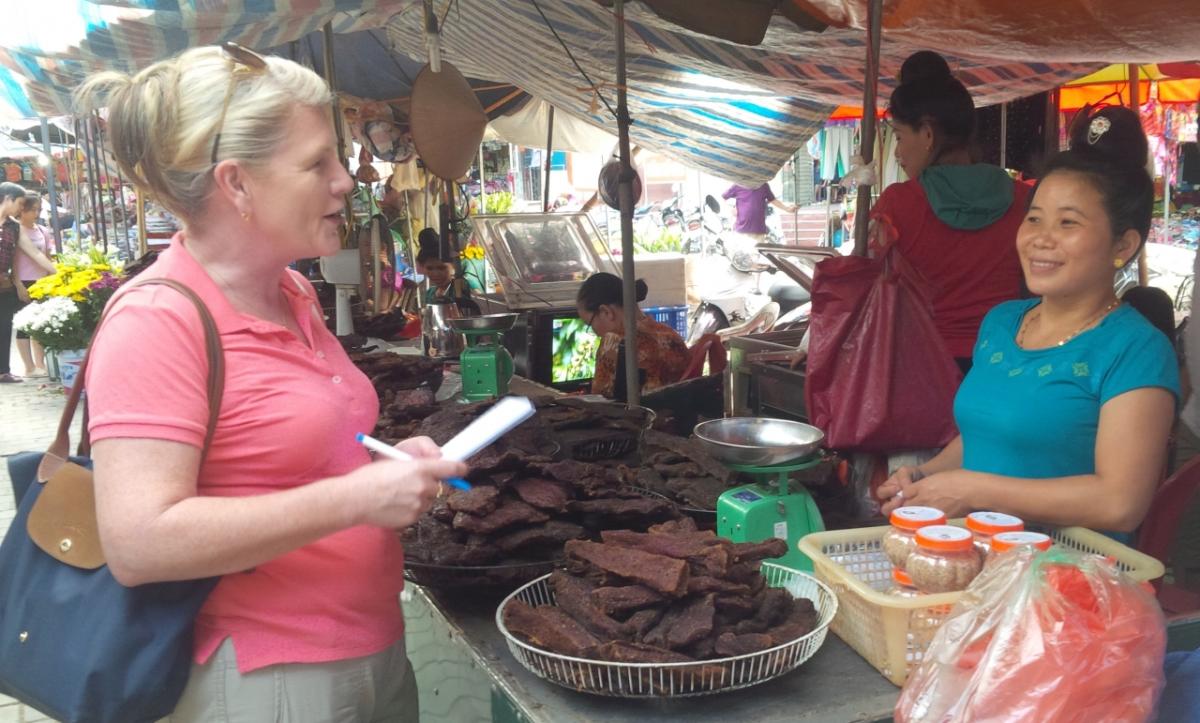Pfizer’s 15-Year Legacy of Skills-Based Volunteering Helps Improve Healthcare Capacity Around the World

Fifteen years ago, Pfizer established its skills-based volunteer program that takes a collaborative approach to deliver on its commitment to address pressing health needs in underserved communities around the world. Through this unique initiative, 490 Pfizer colleagues have contributed their diverse expertise and time in 50 countries to work with more than 70 partner organizations on projects aimed at strengthening health systems. To date, Pfizer colleagues have completed 385+ catalytic projects worldwide and contributed approximately 370,000 hours of service, supporting progress toward the United Nations Sustainable Development Goals (SDGs).
“I’m very proud of our skills-based volunteering initiatives and the impact the program has had, both on communities around the world and the colleagues who have participated over the years,” said Caroline Roan, Vice President of Corporate Responsibility at Pfizer. “Building global healthcare capacity is key to advancing the SDGs and creating a healthier world for future generations.”
In 2002, Pfizer committed to lending the skills and expertise of its colleagues to help address the personnel gap in providing health care service in response to the global HIV/AIDS epidemic. Within eight months, Pfizer launched the Global Health Fellows (GHF) program, which places Pfizer colleagues in three- to six-month assignments with local nonprofit partners to offer technical assistance and help build healthcare capacity in communities around the world. Since then, Pfizer has continuously evolved its skills-based volunteering models to respond to partner organizations’ needs, and expanded volunteering opportunities for colleagues. In 2010, a shorter-term program called Global Health Teams was created. Cross functional teams of colleagues deploy for up to three weeks, providing their technical and professional expertise to help address a pressing operational or strategic issue the partner organization is facing. Through individual Fellows or Teams, Pfizer aims to transfer colleagues’ professional skills to build and strengthen local partner organizational and staff capacity to help ensure the partner organization’s long-term sustainability and enhance its impact at the community level.
Over these 15 years, colleague assignments have ranged from helping organizations develop plans to scale sustainable, efficient healthcare services for vulnerable individuals in India, to building capacity in support of the reduction of maternal and newborn mortality rates in Indonesia, to improving supply chain management systems in Kenya, and more.
“My experience volunteering with the Infectious Diseases Institute in Kampala, Uganda was humbling and eye opening as I got to experience, firsthand, the patient care challenges that developing countries face,” said Oonagh Puglisi, 2009 Fellow and former head of the Global Health Fellows program at Pfizer. “From my time as a Fellow and then as program director, I witnessed the incredible impact Pfizer colleagues and nonprofit partners can create together. These partners are already delivering critical health programs for the communities they serve, and through Pfizer’s skills-based volunteer program, we help amplify their efforts to reach more people with lasting solutions.”
As the skills-based volunteering program continues to evolve, Pfizer’s goal remains the same − to offer its colleagues as resources to help strengthen health systems in underserved communities with the greatest need. “Our commitment to helping find solutions to the biggest healthcare challenges in collaboration with our colleagues and partners around the world remains unwavering,” said Caroline Roan. “Our work is far from done, and we are excited about the progress we can continue to make together in the next 15 years.”
Visit Pfizer.com/IndividualVoices to learn more about Pfizer’s global health programs and hear from Global Health Fellows and Teams.

